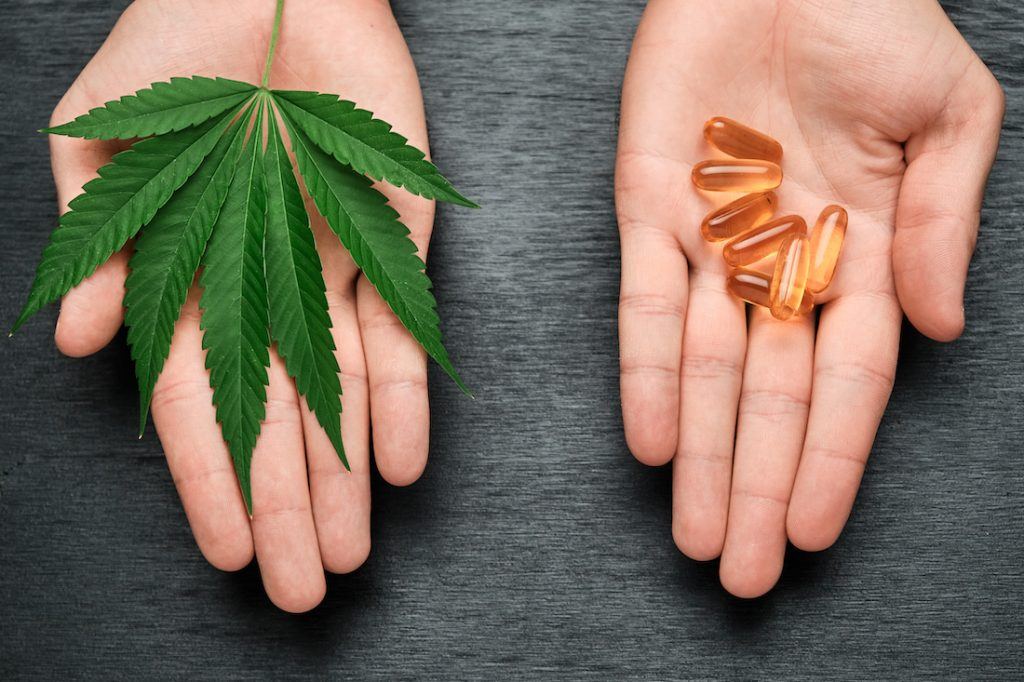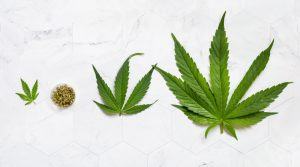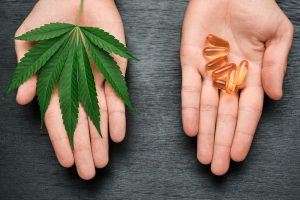
Cannabidiol (CBD) and cannabis are often discussed interchangeably, but they have important differences that set them apart. CBD is a compound found within cannabis plants that doesn’t produce the intoxicating effects typically associated with cannabis. On the other hand, cannabis, particularly the strains high in tetrahydrocannabinol (THC), is known for producing a “high.” Understanding the differences between these two substances can help consumers make more informed decisions when choosing products for wellness or recreational use.
At PotMates, we aim to make buying and consuming cannabis both easier and more responsible. Since our launch in Portland on April 20, 2020, we’ve been committed to offering free cannabis delivery to our customers, with no minimum purchase required. We work with local, sustainable growers, carefully curating a menu of top-shelf cannabis products. Our goal is to reduce the stigma around cannabis use by promoting responsible consumption and education, helping our customers enjoy high-quality cannabis in the best way possible.
What is CBD and How Does It Work?
CBD, short for cannabidiol, is one of the many compounds found within cannabis plants. Unlike THC, the psychoactive component of cannabis, CBD is non-intoxicating, meaning it does not produce the “high” that people often associate with cannabis use. This quality makes CBD an appealing option for those seeking the potential benefits of cannabis without any mind-altering effects. Extracted from hemp or cannabis plants, CBD has become a popular ingredient in a variety of consumer products, from oils and edibles to topicals and capsules.
A recent study from the CDC stated that CBD interacts with the body through the endocannabinoid system, a network of receptors found throughout the human body that helps regulate various physiological processes such as mood, sleep, appetite, and immune response. The key receptors involved in this system, CB1 and CB2, react differently to CBD than they do to THC. While THC binds directly to CB1 receptors, creating the sensation of being “high,” CBD interacts indirectly with these receptors, promoting balance and homeostasis in the body without causing intoxication. This is one reason why many people incorporate CBD into their wellness routines.
Under the 2018 Farm Bill, CBD derived from hemp—defined as cannabis plants containing less than 0.3% THC—was legalized at the federal level. This law removed hemp from the list of controlled substances, making CBD products derived from hemp more widely available. However, it’s important to note that CBD can also be derived from cannabis plants that contain higher levels of THC. The source of the CBD determines its legal status, as cannabis-derived CBD remains regulated differently depending on state laws. This distinction between hemp-derived and cannabis-derived CBD is crucial for consumers to understand when selecting products.
The Role of THC in Cannabis
Tetrahydrocannabinol, or THC, is the primary psychoactive compound found in cannabis, responsible for the euphoric “high” commonly associated with marijuana use. When THC is consumed, it binds directly to the CB1 receptors in the brain, triggering effects that range from altered sensory perception and relaxation to heightened appetite and euphoria. This intoxicating effect is what differentiates THC-heavy cannabis products from those containing CBD, which does not produce the same psychoactive experience.
Cannabis products high in THC are known for their strong psychoactive effects, making them popular for both recreational and medicinal use. THC-dominant products, such as traditional flower, edibles, and concentrates, are often chosen for their ability to create a more noticeable shift in mood and cognition. In contrast, CBD products, especially those derived from hemp with minimal THC, do not produce these mind-altering effects. This difference allows CBD to be used in various wellness contexts without the risk of intoxication, while THC products are more closely monitored due to their potential to impair judgment and coordination.
While THC can provide a range of benefits, its consumption is not without risks. Due to its psychoactive nature, THC may impair motor skills and cognitive function, making activities like driving dangerous after use. In many regions, THC is still heavily regulated due to its potential for misuse and its status as a controlled substance. Consumers should be mindful of the legal status of THC in their state, as well as the potential side effects, which might include anxiety, paranoia, and short-term memory impairment, especially with high doses. Understanding these risks is essential for making informed decisions about THC consumption.
CBD vs. Cannabis: Effects on the Body and Mind
CBD and THC, while both derived from cannabis plants, have distinctly different effects on the brain and body. As previously mentioned, CBD is non-psychoactive, meaning it does not produce the intoxicating effects that are commonly associated with cannabis. CBD interacts with the body’s endocannabinoid system without binding directly to CB1 receptors in the brain, which is why it doesn’t create the “high” that comes from THC. Instead, CBD is known for promoting relaxation and balance within the body, often without the noticeable changes in perception or cognitive function that THC induces. THC, on the other hand, directly affects the brain’s CB1 receptors, leading to altered states of consciousness, including euphoria and heightened sensory experiences.
Both CBD and THC have potential health benefits, though they are used for different purposes. CBD has been recognized for its ability to support wellness, with the FDA even approving a CBD-based drug, Epidiolex, for the treatment of rare seizure disorders. This marks one of the first official medical uses of CBD, though research is still ongoing to determine the full range of its effects. THC, meanwhile, is often used for medicinal purposes, particularly in managing chronic pain, nausea, and appetite loss, especially for individuals undergoing treatments like chemotherapy. Many medical cannabis patients rely on THC-heavy products for relief, while others opt for CBD to manage symptoms without the psychoactive experience.
Despite the benefits, both CBD and THC come with safety concerns that consumers should be aware of. While CBD is generally considered safe for most people, side effects such as drowsiness, changes in appetite, and potential interactions with medications have been reported. THC, on the other hand, poses a greater risk of impairment, as it may affect motor skills, reaction times, and cognitive abilities. High doses of THC might also lead to anxiety, paranoia, and short-term memory issues. To avoid these risks, consumers need to be mindful of the differences between CBD and THC, carefully reading product labels and purchasing from reputable sources to ensure they are selecting the right product for their needs.
Why CBD Products May Contain THC: What You Need to Know
While CBD products are widely recognized for their non-intoxicating effects, it’s important to understand that some CBD products may contain trace amounts of THC, especially those labeled as “full-spectrum.” Full-spectrum CBD products include a wide range of cannabinoids naturally present in the cannabis plant, including small amounts of THC (typically less than 0.3% for hemp-derived CBD). These trace amounts of THC are not usually enough to cause intoxication, but they can still show up on drug tests or produce mild effects in sensitive individuals. This is why it’s critical for consumers to be aware of the type of CBD product they are purchasing, whether it’s full-spectrum, broad-spectrum (which removes THC), or CBD isolate (which contains only CBD).
The risk of unintentional THC consumption becomes even more concerning when products are mislabeled or poorly regulated. The CBD industry, while growing rapidly, remains largely unregulated, which means that some products may not accurately disclose their THC content. Studies have shown that some CBD products on the market contain higher levels of THC than advertised, which may lead to unintended intoxication or failed drug tests. Consumers who are unaware of this possibility could find themselves experiencing unwanted psychoactive effects or, in worse cases, legal issues. This makes it all the more important to purchase CBD products from reputable companies that prioritize accurate labeling and third-party testing.
To avoid unintended effects from THC, it’s essential for consumers to take the time to read product labels carefully and ensure they are buying from trustworthy sources. Look for companies that provide transparency regarding their sourcing, extraction methods, and testing results. Certificates of Analysis (COAs) from independent labs are key indicators of product quality, as they confirm both the CBD and THC content. By choosing products from reliable manufacturers and being mindful of what they are consuming, individuals can enjoy the benefits of CBD without the risks associated with accidental THC intake.
Get the Best Cannabis Products Delivered by PotMates
CBD and cannabis may come from the same plant family, but they have distinct differences in terms of legal status, effects, and uses. While CBD is non-psychoactive and often used for promoting wellness without the intoxicating effects, cannabis—especially strains high in THC—produces the familiar “high” associated with marijuana. CBD, particularly when derived from hemp, is legal in many places under the 2018 Farm Bill, while cannabis remains more heavily regulated due to its psychoactive properties. Whether using CBD or cannabis, it’s important for consumers to be informed about the products they choose, ensuring they are selecting the right options for their needs and engaging in responsible consumption.
At PotMates, we make it easy and convenient to explore high-quality cannabis products, all from the comfort of your own home. Our curated menu offers a selection of top-shelf flower, pre-rolls, edibles, and more, each chosen for its unique qualities and sourced from sustainable, locally-based growers. With free delivery anywhere in Portland and no minimum purchase required, we make sure your cannabis experience is both enjoyable and responsible. Explore our menu today, and discover how PotMates can bring you the best cannabis products with the ease and convenience you deserve.
Medical Disclaimer
The information provided in this blog is for educational purposes only and should not be construed as medical advice. CBD and cannabis products affect individuals differently, and potential side effects or interactions with medications should be considered. Always consult with a healthcare professional before starting any new wellness or medicinal regimen, especially if you are pregnant, breastfeeding, or taking prescription medications. PotMates does not claim to treat, diagnose, or cure any medical conditions.



